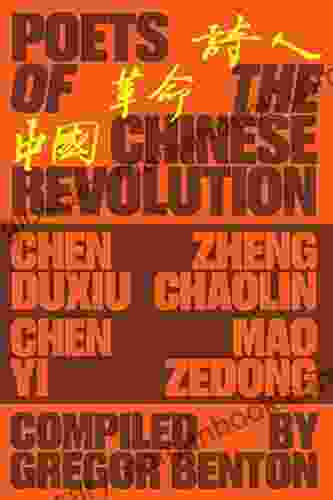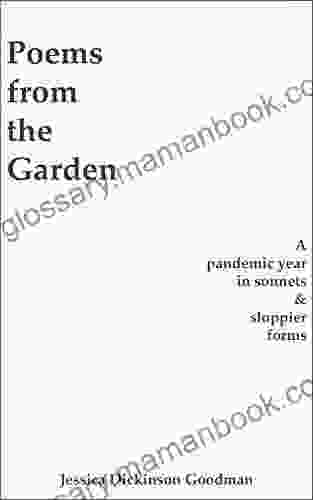Poets of the Chinese Revolution: A Literary Exploration of Social, Political, and Cultural Transformation

The Chinese Revolution, a pivotal period in the nation's history, witnessed a profound surge in literary expression, particularly in the realm of poetry. Poets emerged as potent voices, chronicling the upheaval, aspirations, and the indomitable spirit of a nation in transition. Their works, deeply intertwined with the political and social landscape, became a powerful force in shaping the revolution's narrative and inspiring generations to come. This article explores the pivotal role of Poets of the Chinese Revolution, analyzing their literary techniques, thematic concerns, and the enduring impact they have had on Chinese literature and society.
The Rise of Revolutionary Poetry
As China embarked on its revolutionary journey, poetry became a vital tool for mobilizing the masses and galvanizing support for the cause. The May Fourth Movement of 1919 marked a watershed moment, as young intellectuals and writers sought to challenge traditional values and embrace modernity. Revolutionary poetry flourished in this atmosphere, with poets such as Lu Xun using his incisive satire to expose social injustices and advocate for social reform.
4.7 out of 5
| Language | : | English |
| File size | : | 21928 KB |
| Text-to-Speech | : | Enabled |
| Screen Reader | : | Supported |
| Enhanced typesetting | : | Enabled |
| Word Wise | : | Enabled |
| Print length | : | 379 pages |
The establishment of the Chinese Communist Party in 1921 further fueled the growth of revolutionary poetry. The party recognized the power of literature as a means of spreading its message and inspiring the populace. Poets like Mao Zedong penned stirring anthems that celebrated the Communist ideals of liberation and equality.
Literary Techniques and Stylistic Innovations
The Poets of the Chinese Revolution employed a diverse range of literary techniques to convey their messages. Many drew inspiration from traditional Chinese poetry, incorporating classical forms and imagery. Others experimented with Western influences, introducing modernistic styles and free verse.
Symbolism and allegory played a significant role in revolutionary poetry. Poets often used symbols to represent complex ideas and emotions. For instance, the imagery of a "red sun" symbolized the triumph of the revolution, while the figure of the "worker" represented the oppressed masses.
Language was a powerful tool in the poets' arsenal. They employed simple, colloquial language to ensure accessibility to a broad audience. However, they also utilized sophisticated literary devices, such as metaphors and personification, to create vivid imagery and evoke strong emotions.
Thematic Concerns and Social Commentary
The thematic concerns of Poets of the Chinese Revolution were deeply rooted in the social, political, and cultural transformation that the nation was undergoing. They explored themes such as:
Social Justice and Equality:
Poets condemned feudalism, imperialism, and the exploitation of the working class. They championed the cause of the oppressed and the marginalized, advocating for a more just and equitable society.
Nationalism and Patriotism:
Revolutionary poetry celebrated the Chinese people's struggle for independence and sovereignty. Poets expressed their love for their homeland and rallied the masses to fight against foreign aggression.
Class Struggle and Revolution:
The poets were fervent advocates of class struggle and the revolutionary overthrow of the oppressive political system. They believed in the power of the masses to bring about societal change.
Modernity and Progress:
Poets embraced modernity as a force for social transformation. They celebrated technological advancements and the progress brought about by the revolution, while also grappling with the challenges and contradictions of modernization.
Historical and Cultural Significance
The Poets of the Chinese Revolution occupy a revered position in Chinese literature and history. Their works have become an enduring testament to the tumultuous era they lived in. They not only shaped the narrative of the revolution but also influenced the development of modern Chinese literature.
Through their stirring words, these poets inspired countless individuals to join the revolutionary struggle. Their works continue to resonate with readers today, offering insights into the human experience during momentous historical events.
Moreover, the Poets of the Chinese Revolution played a crucial role in the preservation of Chinese cultural traditions. They drew on classical forms and imagery while also introducing new stylistic elements, thus contributing to the evolution of Chinese literary aesthetics.
Notable Figures and Their Contributions
Among the many distinguished poets of the Chinese Revolution, a few stand out for their significant contributions:
Lu Xun (1881-1936):
Lu Xun was a towering figure in early 20th-century Chinese literature. His incisive satirical works exposed the social and political ills of his time, earning him the title of the "Father of Modern Chinese Literature."
Mao Zedong (1893-1976):
As the founding father of the People's Republic of China, Mao Zedong also left an indelible mark on Chinese poetry. His revolutionary anthems, such as "The East Is Red," continue to inspire and mobilize generations.
Tian Han (1898-1968):
Tian Han is best known for penning the lyrics of the national anthem of the People's Republic of China, "March of the Volunteers." His patriotic and revolutionary poems played a significant role in galvanizing support for the communist cause.
Ai Qing (1910-1996):
Ai Qing was a prominent poet of the mid-20th century. His works expressed the struggles and aspirations of the Chinese people during turbulent times, particularly during the Second Sino-Japanese War and the Cultural Revolution.
Enduring Legacy and Contemporary Relevance
The legacy of the Poets of the Chinese Revolution continues to reverberate in contemporary Chinese society. Their works are widely studied and anthologized, inspiring new generations of writers and activists. Their themes of social justice, equality, and the pursuit of a better society remain relevant in the face of modern-day challenges.
Moreover, the Poets of the Chinese Revolution have had a significant impact on world literature. Their works have been translated into numerous languages, reaching audiences around the globe. They have contributed to a broader understanding of Chinese culture and history and have fostered cross-cultural dialogue and exchange.
The Poets of the Chinese Revolution were transformative figures in Chinese literature and history. Their works, deeply rooted in the social, political, and cultural upheavals of their time, provided a powerful voice for the masses and played a pivotal role in shaping the course of the revolution. Their legacy of literary excellence, thematic depth, and unwavering commitment to social transformation continues to inspire and resonate with readers to this day.
4.7 out of 5
| Language | : | English |
| File size | : | 21928 KB |
| Text-to-Speech | : | Enabled |
| Screen Reader | : | Supported |
| Enhanced typesetting | : | Enabled |
| Word Wise | : | Enabled |
| Print length | : | 379 pages |
Do you want to contribute by writing guest posts on this blog?
Please contact us and send us a resume of previous articles that you have written.
 Top Book
Top Book Novel
Novel Fiction
Fiction Nonfiction
Nonfiction Literature
Literature Paperback
Paperback Hardcover
Hardcover E-book
E-book Audiobook
Audiobook Bestseller
Bestseller Classic
Classic Mystery
Mystery Thriller
Thriller Romance
Romance Fantasy
Fantasy Science Fiction
Science Fiction Biography
Biography Memoir
Memoir Autobiography
Autobiography Poetry
Poetry Drama
Drama Historical Fiction
Historical Fiction Self-help
Self-help Young Adult
Young Adult Childrens Books
Childrens Books Graphic Novel
Graphic Novel Anthology
Anthology Series
Series Encyclopedia
Encyclopedia Reference
Reference Guidebook
Guidebook Textbook
Textbook Workbook
Workbook Journal
Journal Diary
Diary Manuscript
Manuscript Folio
Folio Pulp Fiction
Pulp Fiction Short Stories
Short Stories Fairy Tales
Fairy Tales Fables
Fables Mythology
Mythology Philosophy
Philosophy Religion
Religion Spirituality
Spirituality Essays
Essays Critique
Critique Commentary
Commentary Glossary
Glossary Bibliography
Bibliography Index
Index Table of Contents
Table of Contents Preface
Preface Introduction
Introduction Foreword
Foreword Afterword
Afterword Appendices
Appendices Annotations
Annotations Footnotes
Footnotes Epilogue
Epilogue Prologue
Prologue David C Coleman
David C Coleman Diane Capri
Diane Capri Chelsea Taylor
Chelsea Taylor Isaac M Hamm Iii
Isaac M Hamm Iii Abd El Raouf Emad
Abd El Raouf Emad Sarita Leone
Sarita Leone Bern Dean
Bern Dean Serena Dyer
Serena Dyer Abigail Friedman
Abigail Friedman Jeanne St James
Jeanne St James Christopher Prior
Christopher Prior Tatsuki Fujimoto
Tatsuki Fujimoto Gordon L Clark
Gordon L Clark Dennis Chighisola
Dennis Chighisola Brooks D Simpson
Brooks D Simpson Abigail Houston
Abigail Houston Ruth Rogers Clausen
Ruth Rogers Clausen Michelle Halket
Michelle Halket Michael Waters
Michael Waters Sara Campbell
Sara Campbell
Light bulbAdvertise smarter! Our strategic ad space ensures maximum exposure. Reserve your spot today!
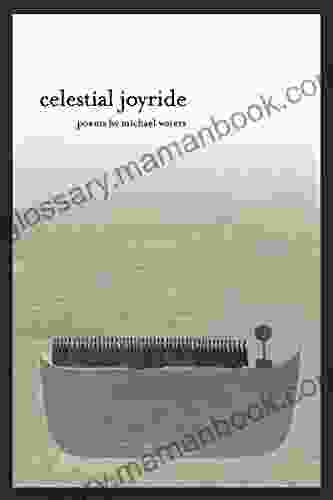
 Jackson BlairCelestial Joyride: American Poets Continuum 154 - An Exploration of Limitless...
Jackson BlairCelestial Joyride: American Poets Continuum 154 - An Exploration of Limitless... Hector BlairFollow ·10k
Hector BlairFollow ·10k Jack PowellFollow ·2.3k
Jack PowellFollow ·2.3k Jules VerneFollow ·2.4k
Jules VerneFollow ·2.4k Derek CookFollow ·16.3k
Derek CookFollow ·16.3k Jamal BlairFollow ·16.9k
Jamal BlairFollow ·16.9k Jayson PowellFollow ·19.8k
Jayson PowellFollow ·19.8k Dwight BlairFollow ·15.5k
Dwight BlairFollow ·15.5k Wayne CarterFollow ·14.1k
Wayne CarterFollow ·14.1k

 Cody Blair
Cody BlairWill You Ever Pee Alone Again? The Future of Bathroom...
The bathroom has long been a place of...
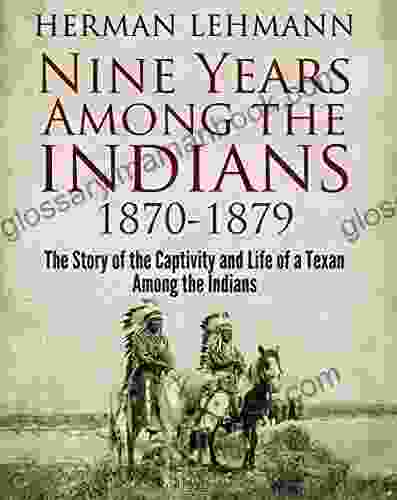
 Al Foster
Al FosterNine Years Among the Indians 1870-1879: Witnessing Their...
In the annals of American...
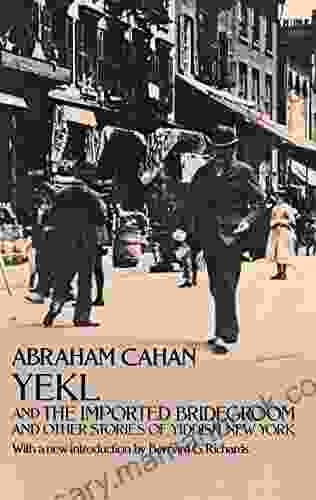
 Pete Blair
Pete BlairYekl and the Imported Bridegroom: A Window into the New...
Abraham Cahan's Yekl and the...
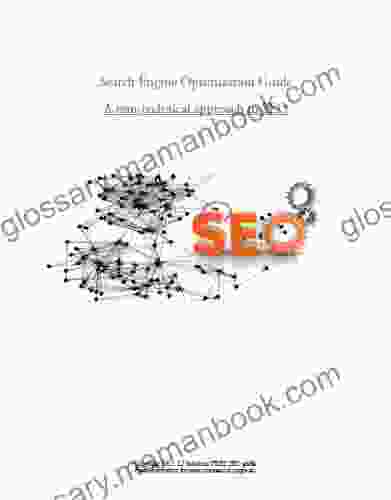
 Pablo Neruda
Pablo NerudaSearch Engine Optimization Guide: A Non-Technical...
In today's digital landscape, having a...
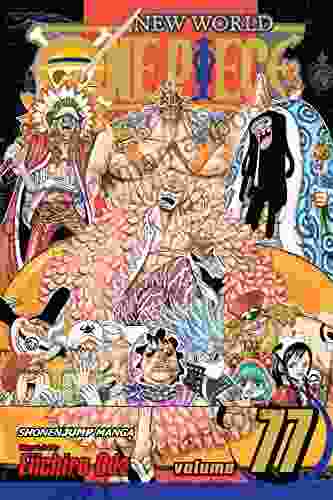
 Nikolai Gogol
Nikolai GogolOne Piece Vol 77: Smile - The Saga Continues with...
The Enthralling World...
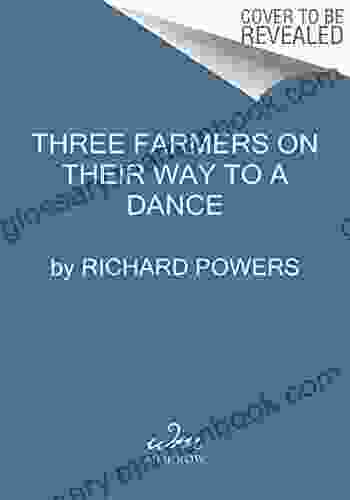
 Dan Henderson
Dan HendersonThree Farmers On Their Way To Dance
In a quaint countryside...
4.7 out of 5
| Language | : | English |
| File size | : | 21928 KB |
| Text-to-Speech | : | Enabled |
| Screen Reader | : | Supported |
| Enhanced typesetting | : | Enabled |
| Word Wise | : | Enabled |
| Print length | : | 379 pages |


